Forecasting 2024: Legislative Hurdles, Safety Innovations, and Global Freight
Welcome to the last news hits roundup of 2023, join us as we delve into the evolving dynamics of ever changing industry. This article brings to light the pressing issues and key trends that are shaping the landscape in 2024. From anticipated regulatory shifts and the implications of new safety measures to the financial hurdles faced by small trucking businesses and the global shipping industry’s struggle with a freight recession, we cover a spectrum of topics that are critical to professionals in this field. Stay informed and ahead of the curve as we explore these pivotal developments that are redefining the future of trucking and logistics. Anticipating Regulatory Shifts in Trucking for 2024 With 2024 looming, the trucking industry faces potential legislative stagnation due to election-year politics, yet significant regulatory changes could emerge, particularly if there’s a shift in administration. Key focus areas include stricter standards for defining independent contractors and enhanced carbon emission regulations for heavy trucks. These changes align with current labor and climate priorities and could substantially impact operational and financial aspects of the trucking sector. Reflecting on 2023: Major Challenges and Developments Looking back at 2023, truck parking and broker transparency dominated industry discussions. Federal funding addressed the critical truck parking shortage, marking a significant step forward. However, the delay in broker transparency regulation left small business truckers frustrated, underscoring the ongoing complexities within the industry. The Road Ahead: Safety and Compliance in Focus for 2024 As we move into 2024, safety initiatives are poised to take the forefront. Key areas include the enhancement of the Compliance, Safety, Accountability Safety Measurement System and the implementation of new safety-specific rulemakings like speed limiters and automated driving systems oversight. These upcoming changes highlight the evolving landscape of trucking, emphasizing the importance of adapting to new safety and compliance standards. 🔗 Dive deeper into the trucking industry’s challenges and opportunities for 2024 here. Georgia Trucking Company Faces Steep Tow Bill A recent incident in Georgia has highlighted the financial challenges small trucking companies can face. Elshaddai Truckers and Logistics, a modest-sized firm, encountered a hefty tow bill after their box truck broke down on I-75. The truck’s breakdown, caused by a failed brake line, led to traffic disruption, prompting police intervention and the summoning of a tow service. The incident underscores the unpredictable costs that can burden small businesses in the trucking industry. The Role of TRIP in Traffic Management and Tow Costs The towing service was facilitated by Georgia’s Towing and Recovery Incentive Program (TRIP), designed to expedite the clearing of commercial vehicle incidents. TRIP, active since 2008, aims to minimize traffic congestion by using vetted tow companies. However, this particular incident resulted in a substantial tow bill for Elshaddai Truckers and Logistics, totaling $12,345 with a same-day payment discount. This situation sheds light on the financial impact such programs can have on small trucking businesses, especially when there’s no standard rate set for law enforcement-initiated tows. Financial Strain and Operational Challenges for Elshaddai Elshaddai Truckers and Logistics faces not only the immediate burden of the tow bill but also the operational challenge of undelivered freight. The company expressed their inability to pay the steep bill, which rose to $16,515 the following day. This scenario reflects a broader issue within the trucking industry, where small companies often grapple with unforeseen expenses, directly affecting their financial stability and ability to fulfill logistics commitments. 🔗 Learn more about the challenges faced by small trucking companies like Elshaddai here. Global Shipping Industry Grapples with Freight Recession The global shipping industry, according to a recent CNBC Supply Chain Survey, is enduring a freight recession that’s expected to persist into 2024. Key factors contributing to this downturn include high inventories and reduced consumer spending. Logistics executives from prominent companies like C.H. Robinson and DHL Global Forwarding Americas participated in the survey, providing valuable insights into the challenges facing the industry. This data not only reflects current market conditions but also offers a glimpse into future freight rates and volumes, essential for companies in the shipping sector. Trucking and Shipping Sectors Face Sluggish Growth and Pricing Pressure The survey highlights a concerning outlook for trucking and shipping, with expectations of little to no growth in the first half of 2024. This stagnation suggests stable to downward pricing trends. The impact is significant for trucking companies, who get paid per load and face potential revenue drops due to lower freight rates. Even retail peak season expectations are muted, reflecting the industry’s struggle with diversification and cost-effectiveness in challenging economic conditions. Companies like Convoy, backed by Jeff Bezos, have shut down due to these pressures, indicating a broader issue within the industry. Mixed Outlook for 2024: Hopes for a Second-Half Rebound While the first half of 2024 looks challenging, there is a glimmer of hope for a rebound in the latter half. Logistics executives anticipate a modest increase in freight volume, with some predicting up to a 15% rise. However, this optimism is tempered by the uncertainty surrounding consumer demand and global economic conditions. Ocean and air freight rates are also expected to remain low or decrease further, adding to the industry’s challenges. These factors, combined with diminished cargo volumes, have led to significant layoffs and restructuring in major shipping companies, signaling tough times ahead for the sector. 🔗 Discover more insights from the CNBC Supply Chain Survey on the global shipping industry here. Before You Hit The Road… As we conclude this edition and in turn the year, it’s clear that the trucking and logistics industry is navigating through a period of significant transformation and challenge. The potential legislative changes, ongoing financial struggles of small businesses, and the broader implications of the global freight recession highlight the need for adaptability and resilience in the sector. We invite you to share your thoughts and perspectives on these developments in the comments section below. Your insights are invaluable as we collectively navigate these turbulent waters. Remember to check back next week for another edition of Optimum…


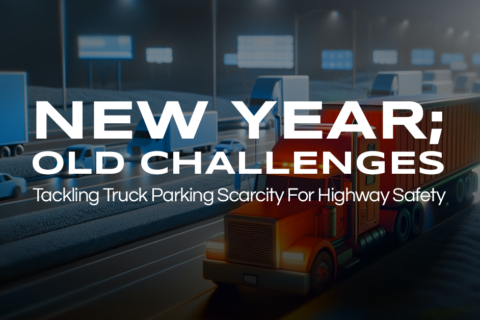


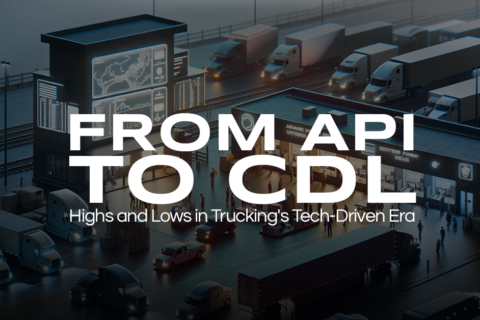
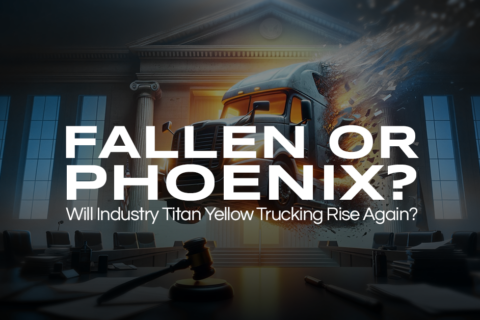
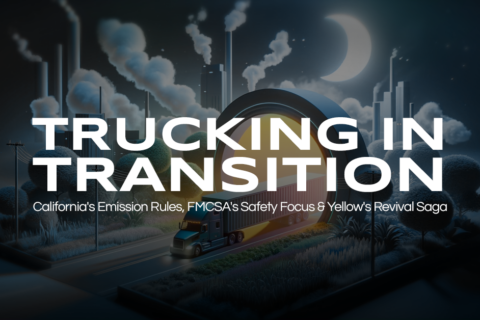
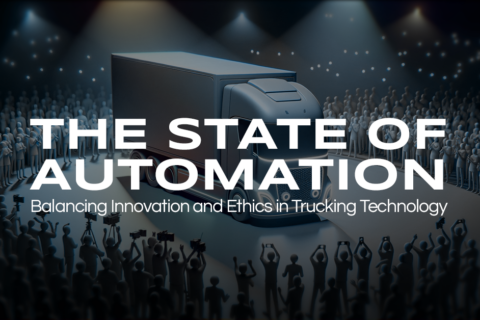
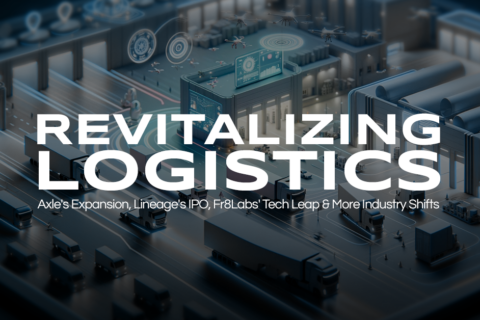
Recent Comments